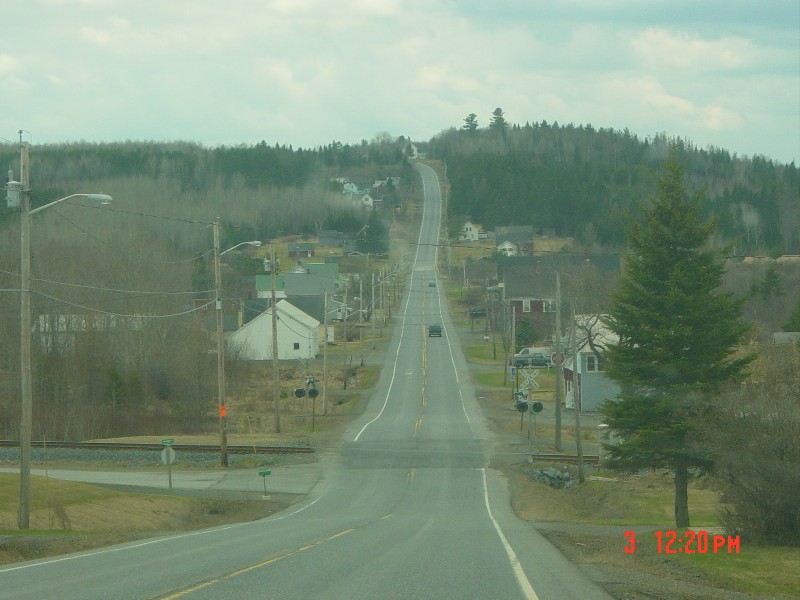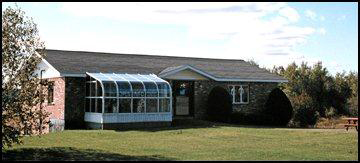- Category: Demographics
- Published on 28 March 2006
- Hits: 15009
Town of Masardis |
|
|
Masardis is a part of history; it is older than the Aroostook War. Several men, who had come as soldiers during the Aroostook War, remained in Masardis. In 2004, Professor Dave Putnam and his students from the University of Maine at Presque Isle unearthed a discovery in Masardis. Along the banks of the Aroostook River in Masardis, a button from a uniform of an Aroostook War soldier was found along with eco facts and fire pits. This proved to be the best site found in Northern Maine; the soldiers sent for their families after working for a period of time. Masardis was named by the early Indians. Masardis means 'where two rivers meet;' others claim it means a large stream. There are two rivers in this area, and they are the Aroostook River and the St. Croix River. Thomas Goss came from Danville, Maine to Masardis with his family in 1833. He settled on the west bank of the Aroostook River. Previously, he lived on the Pyles farm, aks Hutchinson farm. He stayed in Masardis until 1840; then, he moved to the Little Machias River in Ashland, and then, he moved to the Fish River. In 1835, John Knowlen and his family came to Masardis. They originally came from Passadumkeag. They started out in January with two teams of horses, one for themselves and the other for their household wares. They made it as far as Patten, Maine, but they were unable to go any further with the double team. They piled their household goods in the woods with the intention of coming back later when the roads were better. Hardship was always around the corner, especially in the early years. Frost destroyed most of their crops in the first two years. Fish and berries were a staple food for the summer. Mr. Knowlen worked in Patten during the wintertime to help with the provisions needed for his family. In 1836, the first child born in Masardis was Roswell T. Knowlen, John's son. Many boys married older women and raised large families. It wasn't uncommon to see boys fifteen or sixteen marrying women in their twenties or thirties. Many of the girl babies seemed to succumb to disease, so couples of like age were not common. Women were extremely busy; they had to accomplish several tasks, and here they are as follows: raising children, spin yarn, clean, weave cloth, cook and preserve food for the winter months. Obviously, there wasn't much time for pleasure. 1839 was another difficult year for the Knowlens. Due to the lack of provisions, Mr. Knowlen found himself boating to Presque Isle, which was known as Fairbanks during this time, for supplies. His wife was left with four children and little provisions, but with the help of a neighbor, she was able to feed the children until her husband returned a few days later. During that same year, Masardis became incorporated. Records were handed down from generation to generation, but when the town became incorporated, people started to give the town their records instead; however, a fire in 1919 destroyed all of the records. The only records that weren't destroyed were the ones that were taken home to be worked on. After the area was incorporated, more families came to settle in the town. The first bicycle that was bought in Masardis had a large wheel in the front and a smaller wheel in the back; however, it didn't become real popular because of the rough roads. Despite scaring horses with their backfiring, the automobiles came along during this time. Before the railroad came, sportsmen traveled by stagecoach from Bangor. They had traveled either by passenger train or came up the Penobscot. The laws to regulate the number of fish, birds or game did not exist during this period. Deer, moose, and caribou were the main game animals; they were a source of food for the early settlers. Many sporting camps were built in Masardis and Oxbow to help with the demand for sportsmen. The boys worked as porters, women and girls as chambermaids, cooks, laundresses and waitresses. If the water was sufficient, the hunters canoed up the river to reach their camps; if the water wasn't sufficient, they went by tote wagon instead. The tote wagon was a very rough ride because it had no springs, and it rested on the axles as a result. The wagon would get mired in the mud several times. Many of the Maine guides also worked during the fishing season. After that, the Bangor and Aroostook Railroad came in 1895. Products were being shipped in large quantities. A mill was created by Mr. Joseph Pollard on the St. Croix Stream. He also purchased 160 acres of land from the State of Maine. Mr. Pollard also built the first wood-frame house in Masardis. He cleared the land for farming and moved his family into the farm house in October. Even at this time, the family, which consisted of Pollard, his wife and his five children, had to walk miles to get to their new home; this was a sad part of pioneer life. Mr. Pollard bought more land; he also owned the Masardis House, which also served as an inn. There were oth A Commissary was built close to Pollard's home by the famous posse under Sheriff Strickland and Land Agent McIntyre. They built a Breastwork (fort) to house their artillery, and the troops camped in tents. It was a time of excitement at Masardis because it was expected that a body of British troops would come up the river and capture the Yankees. Lookouts were placed along the river to give the warning if needed. There were lots of concern and confusion was had when officers gave the warning to be ready to leave immediately; however, it was only loads of hay coming up the river not the British. Ballads were written during this time. The author is unknown; this tells much about the history of this region. “Come all ye noble Yankee boys, come listen to my story. |
|


 er settlers in this area as well, and here is a list of a few of those settlers: Leavitt, Howe, Fields, Noble, Cowperthwaite, Fitzgerald, Woodward, Fogg, McAllister, and Pishon.
er settlers in this area as well, and here is a list of a few of those settlers: Leavitt, Howe, Fields, Noble, Cowperthwaite, Fitzgerald, Woodward, Fogg, McAllister, and Pishon. Central Aroostook Chamber of Commerce
Central Aroostook Chamber of Commerce Masardis
Masardis